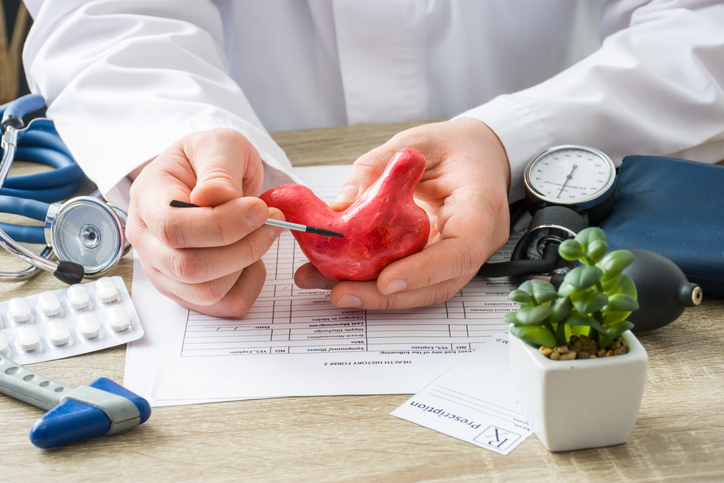

The stomach is an organ that is an essential part of your digestive system. However, you may not have given much thought to how it works. Fortunately, the BMI team is here to explain how the stomach works, conditions that may affect it, and more.
What is the Stomach?
The stomach is a muscular, hollow, J-shaped organ located in the upper abdomen that is made up of several parts, which include:
Cardia
The first part of the stomach, the cardia, is connected to the esophagus. It contains the cardiac sphincter, a thin ring of muscle that prevents stomach contents from going back up into the esophagus, a condition known commonly as acid reflux.
Fundus
The top, rounded area of the stomach is known as the fundus. It is located to the left of the cardia.
Body
The main part of the stomach is known as the body. It is where food is mixed and broken down. The average adult’s stomach holds around one liter of food.
Antrum
The lower part of the stomach is called the antrum. It holds food until it is ready to move into the small intestine.
Pylorus
The part of the stomach connected to the small intestine is called the pylorus. It includes a thick ring of muscle known as the pyloric sphincter, which controls the emptying of stomach contents into the first part of the small intestine.
How the Stomach Works
The stomach’s main function is to digest food received from the esophagus. The food is then mixed with acid to be broken down into a liquid before moving into the small intestine.
What Conditions Affect the Stomach?
Many diseases and other conditions can affect the stomach, such as:
Gastritis
Often caused by the bacteria Helicobacter Pylori, gastritis is the inflammation of the stomach lining. Common symptoms of this condition include:
- Nausea
- Vomiting
- Bloating
- Abdominal pain
- A feeling of fullness
While this condition can be managed using medication, like antacids, you should avoid certain foods, drinks, or medicines that may irritate your stomach.
Ulcers
Ulcers are open sores in the stomach, which often cause bleeding or pain. They can be caused by bacterial infections or stress. While prescription medication can be used to treat ulcers, surgery may sometimes be required.
Stomach Cancer
Tumors may form in the stomach lining. While many are benign, some can turn malignant. Symptoms of stomach cancer include:
- Bleeding
- Weight loss
- Indigestion
- Heartburn
- Changes in appetite
- Bloating
If you notice any of these signs, contact your doctor. They can refer you for stomach cancer screening and treatment. The sooner cancer is found, the more treatable it is.
Gastroparesis
Gastroparesis is a condition where the stomach empties slower than normal. It is common in individuals with diabetes or those who have had procedures that affect the stomach, like bariatric surgery. Common symptoms of gastroparesis include:
- Nausea
- Vomiting
- Bloating
- Belching
- Abdominal pain
- Feelings of fullness
While there is no cure, gastroparesis can be managed with medication and dietary adjustments. If you are considering bariatric surgery, your surgeon will discuss your risk factors with you and create a treatment plan based on them.
Acid Reflux
Also known as gastroesophageal reflux disease (GERD), acid reflux is a digestive disorder that occurs when the muscle between the esophagus and stomach weakens, allowing stomach acid to flow back up into the esophagus.
Frequent heartburn is one of the most common symptoms of acid reflux. It is easily manageable with diet and medication. However, in some severe cases, surgery may be required. Your physician can help you determine how to best manage acid reflux.
Gastroenteritis
Commonly known as the “stomach flu,” gastroenteritis is an infection that clears on its own within a few days. It can be caused by consuming food or water containing certain types of bacteria or parasites. Common symptoms include vomiting and diarrhea, which can be managed with rest and fluids.
Keep Your Stomach Healthy at BMI
Along with diet and exercise, regularly seeing your physician can help you keep your stomach healthy. If you’ve had stomach surgery, including weight loss procedures, consulting with a specialist, like those at BMI, can be especially helpful. To schedule a consultation with one of our bariatric surgeons, contact us at (205) 858-1211.
Care for Your Stomach at BMI
Caring for your stomach goes beyond your diet. Partnering with a specialist, like those at BMI, can help you keep it healthy for years to come. To learn how we can help you manage and treat certain stomach conditions, contact us at (205) 858-1211.



